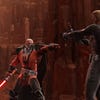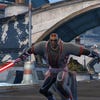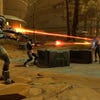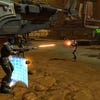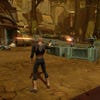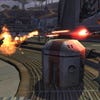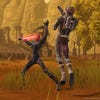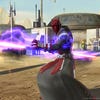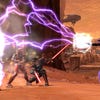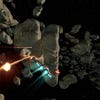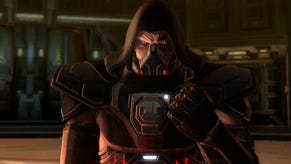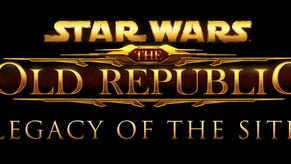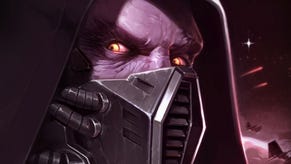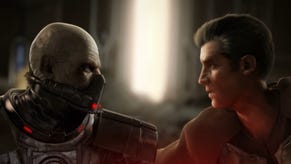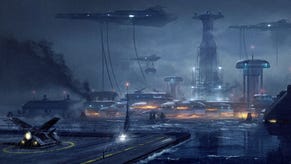Star Wars: The Old Republic
Better off Jedi.
It's early November and EA has taken over an imposing nightclub in London's not-so-stately pleasure dome, the O2, for a showcase of its typically bulging 2011 slate. It's the usual round of presentations, interviews and hands-on slots in 20-minute chunks – but one game is getting special treatment, an entire working day all to itself.
Star Wars: The Old Republic is certainly a special case. I'm not sure I believe EA Louse's anonymous and unsubstantiated claim that it has already cost $300 million to make. (Including eventual marketing, infrastructure and customer support set-up costs? Maybe.) From what I've seen of it, I'm not a total convert, but I'm also not about to declare it "a joke" or predict it will be "one of the greatest failures in the history of MMOs". Let's face it, it would face some stiff competition there.
But there's no doubt that The Old Republic is a huge, costly, high-stakes project for EA, for LucasArts and for BioWare. And despite its dream marriage of the globally popular Star Wars universe with the unbounded yet unrealised potential of the post-Warcraft MMO, it's not a guaranteed success, either.
For the last two years, the Old Republic publicity machine has been content to stress what makes it different from the competition – namely its licence and BioWare's fully-voiced storytelling style – but its qualities as an MMO remained vague at best. Perhaps that was wise; BioWare is a respected RPG studio, but hardly a titan of online gaming, and it had some catching up to do.
But the questions can't be dodged forever. It is time, at last, to see the game in what will be its natural habitat: hours and hours of play on live multiplayer servers. That's what this day is for.
We get to play through most of the starter area for Jedi characters – of both the Knight and Consular classes – on the planet of Tython. We also try a "Flashpoint", which in some ways is The Old Republic's equivalent of a dungeon; an intense, scaling multiplayer experience that blends heavy combat with narrative drama.
On Tython, you begin as a padawan – a Jedi student, for the uninitiated – and complete your training while sorting out local unrest and uncovering some secrets of ancient Jedi history. The quest lines culminate in you assembling your own lightsaber and becoming a Jedi at level 10.
There aren't many surprises here; it's a classic MMO starter zone (the words "dig site" feature within the first two minutes), albeit a well-executed one. You're not using the Force on rats and diseased boars, but groups of marauding Flesh Raiders and malfunctioning droids.
I pick a Jedi Consular, a Yoda-inspired magician of the Force and, along with its opposite number the Sith Inquisitor, probably the closest the Old Republic has to a traditional fantasy MMO caster and healer. Although both Jedis mix lightsaber combat with Force powers, the Knight leans towards acrobatic melee combat while the Consular uses crowd-control to fight from a distance.
The Consular's skills still have a satisfying physicality to them, with the focus on telekinesis allowing you to suspend enemies in mid-air, pepper them with debris, knock them back with a Force Wave or rip rocks out of the ground to hurl at them. At low level, each ability has a clear, distinct function and balances well with the rest of the suite.
There's no disguising the combat's roots in EverQuest and World of Warcraft, although BioWare's insistence on the player fighting multiple enemies at once as the norm rather than the exception does lend it its own flavour. So does the dynamic and unmistakeably Star Wars orchestral music which swells around you as you begin to fight; it can't help but make clicking on skills seem more epic and exciting.
Earlier builds of the game were unchallenging in the extreme, but a lot of tuning work has clearly been done, and it's now involving enough to require an alert mind. This is surprising and quite refreshing, given the autopilot questing offered by the early stages of modern-day WOW and its ilk, although I wouldn't be surprised to see the difficulty rolled back a little before launch for reasons of mass-market accessibility. Still, for today's purposes, it serves to illustrate that the combat is not without depth and the skills not without interesting utility.


